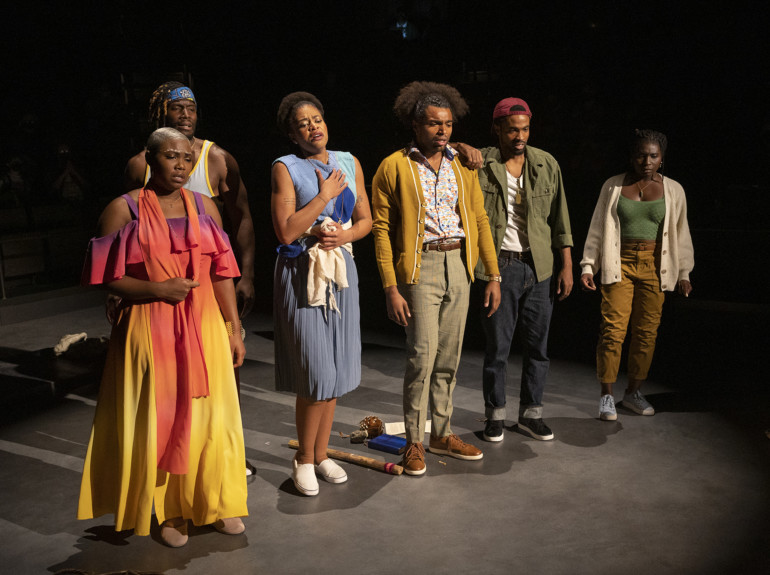On July 27, 1919, Eugene Williams, a Black teenager from Chicago, was murdered after he innocently floated into a territory of the Lake Michigan shore that was colloquially for “whites only.” People on the Lake Shore retaliated by throwing rocks at Williams, causing him to drown. This senseless murder ignited the Chicago Race Riots of 1919 — dubbed The Red Summer of 1919 — entirely reframing race relations in the city.
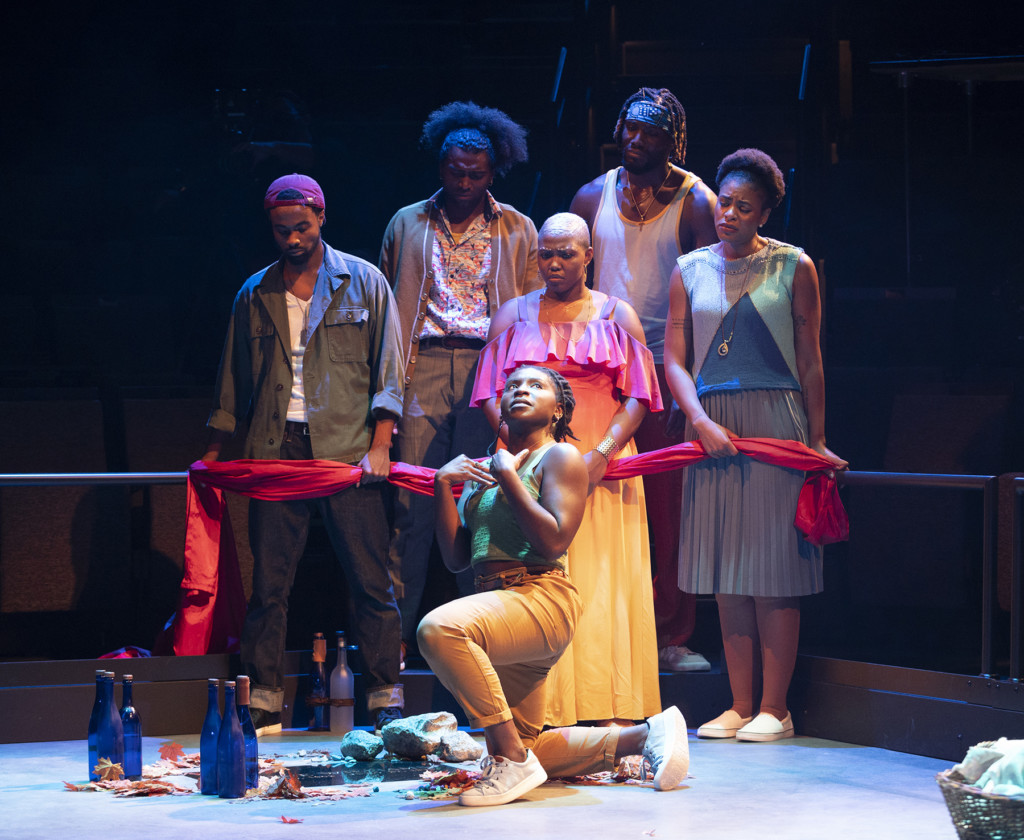
This incident — not unique or singular in any way — is the centering point of Steppenwolf’s “1919,” a theatrical rendition of poet and sociologist Eve L. Ewing’s collection of poetry by the same name. This masterful take on Ewing’s necessary work was adapted by J. Nicole Brooks; directed by Gabrielle Randle-Bent and Tasia A. Jones; and brought to life as part of the Steppenwolf for Young Adults program.
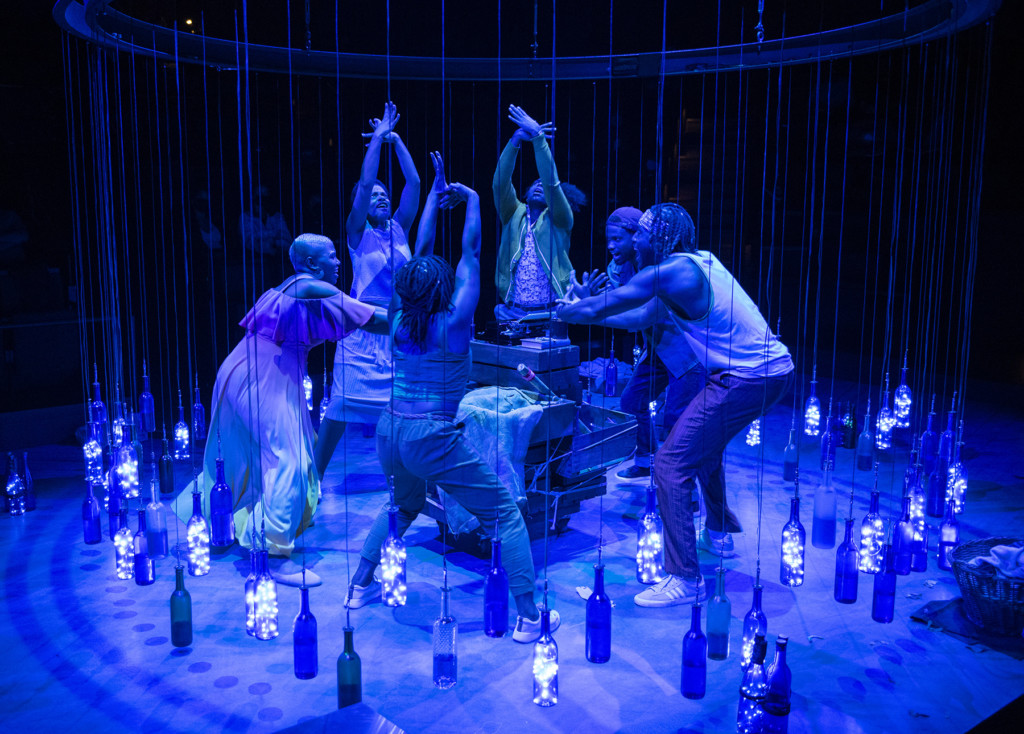
While this story structure is a retracing of mankind’s footsteps, the timeline itself bucks against the constriction of linear time. This story has no beginning or end. Rather, it is ongoing and the performance navigates this dark history the way a curious mind would, from one pattern to another, recognizing incidents as more than outliers but a part of a phenomenon.
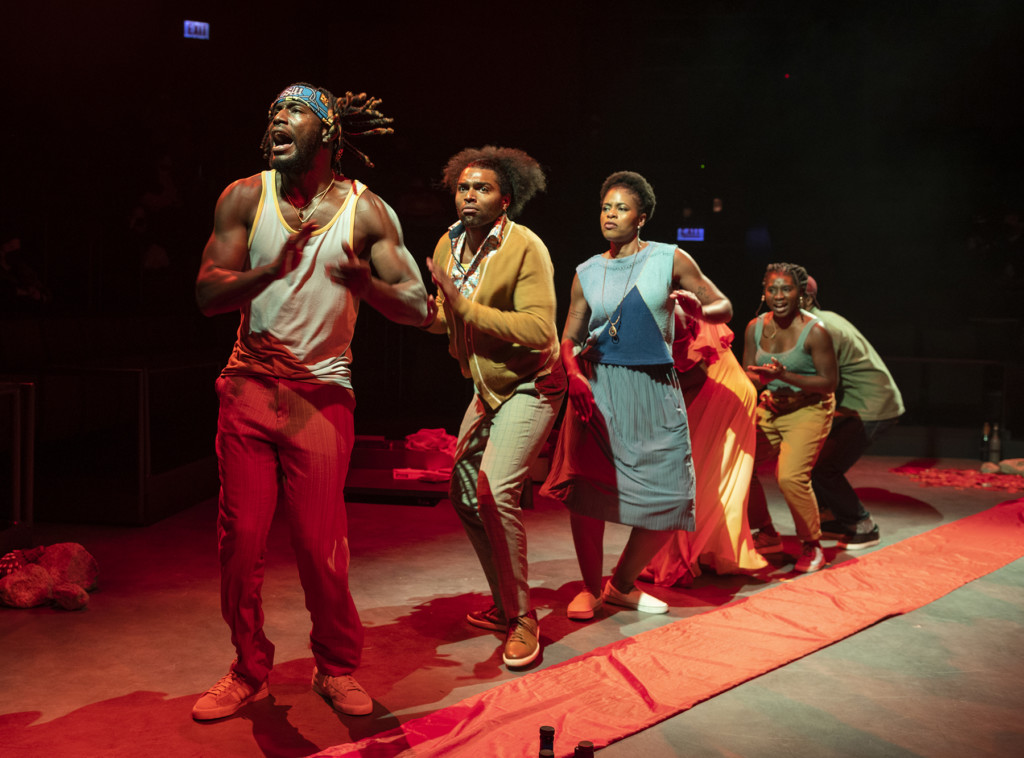
From this center point, the production’s lead, a curious writer and scholar (Sola Thompson), peels back William’s story layer-by-layer. Only to soon be joined by her five “muses” — ancestors or pillars — in her life. While in a word they cannot be named, their existence is a constant tug and emphasis on the varied aspects of the lead’s character — her wisdom, fight and soul — physically in front of her. It’s this collective approach to challenging current understanding for the sake of what is real that elevates this story. It’s the emotional and physical reliance they extend to each other, and the complex sorrow their exploration leaves in the absence of a solution and in the presence of un-masked truth.
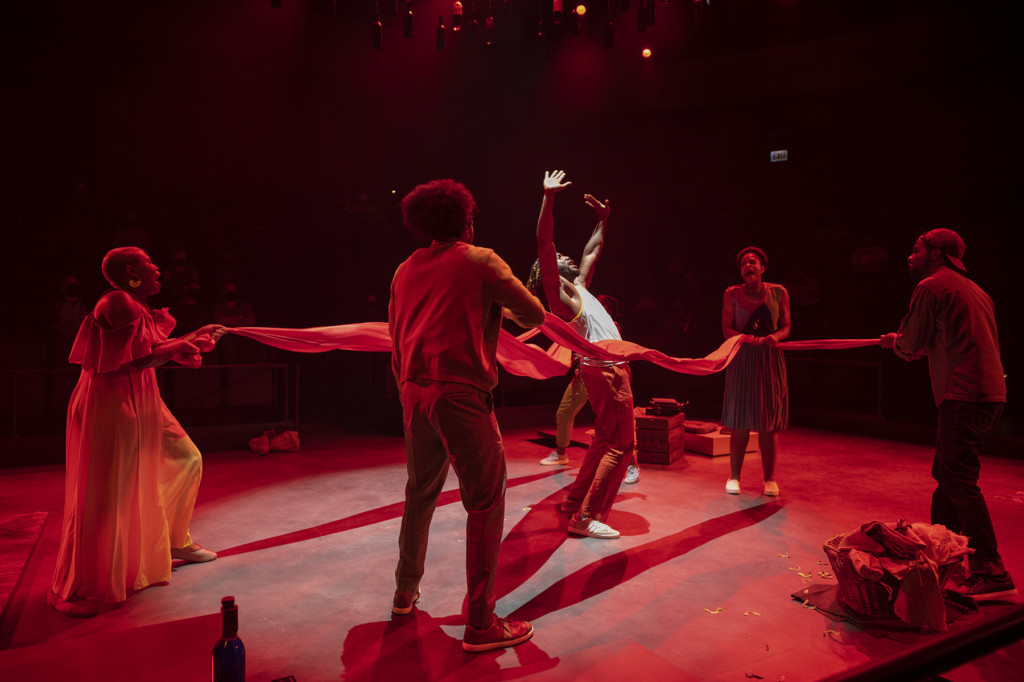
Rhythm, sound and color lifts this production from the gray stage of Steppenwolf’s Ensemble Theater and into our conscious mind. The fully embodied characters are brought to the stage by Sheldon D. Brown (Human 5), DeMorris Burrows (Human 2), Max Thomas (Human 3), Sola Thompson (Human 6), Jessica Dean Turner (Human 1) and Alexis Ward (Human 4).
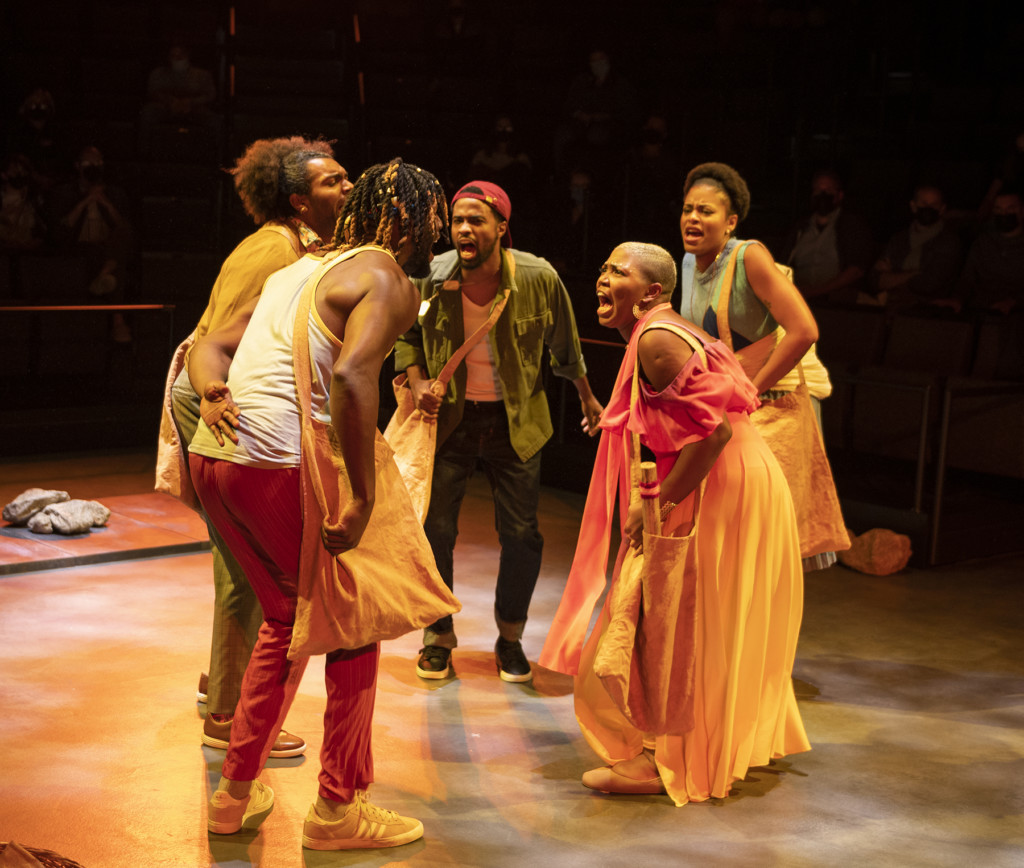
While this production was made possible through the Steppenwolf for Young Adults program and was crafted with that audience (grades 8 and up) in mind, the experience is fitting for anyone who appreciates history, inventive storytelling and desires to understand truth over a pre-existing narrative.
The production runs at Steppenwolf until October 29th. But for audiences unable to see the show before then, the production will have a small Chicago-based tour this fall. Free performances will be held in different parts of the city from November 1-5. More information on the tour and in-theater programming can be found on the Steppenwolf Theatre website.
More from Better:
- 31 of the Best Things to Do in Chicago and the North Shore This October
- Hurricane Ian Devastates Florida: How To Help Those Impacted by the Storm
- Give Time, Things, Support: 5 Ways To Support Those in Need in Chicago and the Suburbs As Cold Weather Approaches

Margaret Smith is a Chicago-based writer and editor with a passion for socio-political storytelling about their community. They are a graduate of Columbia College Chicago.
